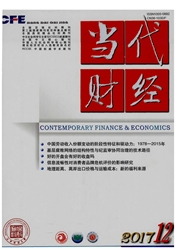

 中文摘要:
中文摘要:
中国在世界范围内频遭反倾销诉讼的同时也在积极利用WTO的规则对贸易伙伴发起反倾销诉讼。反倾销诉讼和立案实施的数量体现了中国与贸易伙伴之间复杂的双边关系。通过负二项面板检验证实,国内经济形势和市场稳定是影响中国反倾销的首要因素,同时,中国发起反倾销诉讼与其遭遇反倾销数量密切相关。相关度因贸易体的反倾销传统而异,对于反倾销“俱乐部”成员,中国既有报复的意图又有被报复的顾虑;对非俱乐部成员,主要是基于对国内产业安全和市场稳定的考虑。由于诉讼过程具有显著的“贸易调查效应”,因此其报复性较反倾销措施的实施更强。整体而言,中国正在经历“边摩擦边学习”的适应过程,对WTO框架下的国际惯例和贸易规制的掌握和运用日臻成熟。
 英文摘要:
英文摘要:
While being frequently encountered with anti-dumping lawsuits in the world, China is also initiating anti-dumping proceedings against its trade partners by actively making use of WTO rules. The anti-dumping proceedings and the number of lawsuits placed on record or being enforced can reflect the complexity of the bilateral relations between China and its trading partners. Through the negative binomial panel test, it can be confirmed that the domestic economic situation and market stability is the primary factor affecting China's anti-dumping activities, while the anti-dumping proceedings initiated by China is closely related to the number of anti-dumping charges it received. The relevance varies according to the anti-dumping tradition of the trade body: as for anti-dumping "club" members, China has both the intention of retaliation and the concern of being retaliated; as for non-club members, China's action is mainly based on the considerations of domestic industrial security and market stability. Because the litigation process has a significant "trade investigation effect" , its retaliatory desire is usually stronger than the anti-dumping measures being implemented. On the whole, China is experiencing the adaptation process of "learning from frictions" , and is becoming more mature to master and use international conventions and trade regulation under the WTO framework.
 同期刊论文项目
同期刊论文项目
 同项目期刊论文
同项目期刊论文
 期刊信息
期刊信息
